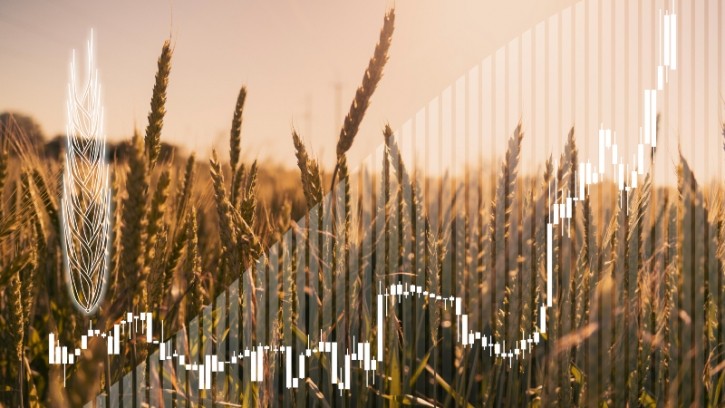Grain trade disruption could cause severe repercussions on dietary energy and protein consumption in the Middle East – study

Due to inadequate arable lands, water scarcity, evolving dietary habits, climate change, and ongoing geopolitical conflicts, the region faces significant food security challenges.
These are exacerbated by rapid population growth, which has exceeded 2% annually and is higher than the global average for middle-income countries (1.3%).
Consequently, MENA countries are highly dependent on imports, especially of grains, which account for most of the supply. This causes the region to be vulnerable to trade disruptions, food shortages, and price fluctuations.
Recent studies have shown that the reliance on imports is expected to increase in the years ahead. However, there is a lack of research on the quantitative link between imported grains and dietary energy and protein supply, as well as the impact of trade disruption on diets.
As such, a group of researchers utilised statistics from the Food and Agriculture Organization (FAO) on the average dietary and nutritional value of grains to calculate the per capita energy and protein consumption that are attributable to imported grains.
The study includes 18 countries, ranging from low-income countries like Yemen to wealthier ones such as Arab states of the Persian Gulf.
It is found that MENA currently consumes 156m ton (Mt) of grain for food and feed per year, of which 68Mt is produced locally and 88Mt imported.
Among these, 94Mt is directly consumed by humans, with wheat (62 Mt) being the predominant commodity.
At the same time, livestock production, of which 29% are poultry meat and eggs, consumes 74% of total grain usage for feed.
The import dependency of individual countries can be split into three categories — Syria (10% imported) and Iran (37%) rely primarily on domestic production; Egypt (41%), Iraq (42%) and Morocco (44%) import approximately half their grains; and the remaining countries, including Bahrain, Kuwait, UAE, Qatar and Yemen, import majority of the grains they consume.
The vulnerability to trade disruption depends not just on the import ratio, but also the role of grains in diets.
The minimum dietary requirements for energy and protein are 1,800 kcal/capita/day and 60 g/capita/day respectively.
“Our analysis revealed that across the MENA region, 40% of total dietary energy (1,261 kcal/capita/day) and 63% of protein (55 g/capita/day) are derived from imported grains. In particular, imports from Russia and Ukraine make up 164 kcal/capita/day of energy and 11 g/capita/day of protein supply.
“This means that trade disruptions and reduced grain imports could jeopardise the nutritional levels of people in the region,” the authors wrote.
The import level at which the average energy or protein supply per capita falls below the minimum requirements varies between countries.
In the case of Yemen, its dietary protein (53 g/capita/day) is already below the minimum, and its dietary energy (2,025 kcal/capita/day) would fall below the minimum if imports dropped by 18%.
On the other hand, Syria’s strong domestic grain production enables it to maintain sufficient dietary protein and energy supply even if imports were “reduced to zero”.
“However, comparing the average dietary energy and protein to minimum requirements is a very conservative estimate for the point at which a country faces severe food shortage. Due to the unequal distribution of food supplies, a large fraction of the population would have experienced shortages well before this point.”
Mitigation measures
According to the authors, even small import reductions can have a large effect.
“Dietary protein would decrease faster than energy for small reductions in imports due to the importance of livestock for protein. If imports fall to a point where the livestock sector no longer receives imported grains, and further reductions exclusively affects the food sector, it will result in a rapid decrease in dietary energy.
“Our results are qualitatively similar to the findings of a growing body of literature that has investigated the impact of trade disruptions on food security, often motivated by the Russian-Ukrainian war and COVID-19 pandemic. This study emphasises the need for proactive measures to mitigate risks, and ensure a stable food and feed supply in the MENA region.”
The authors added that strategies should be country-specific and depend on each country’s degree of reliance on imported grains, as well as logistical complexities.
“For short-term trade disruption, grain reserves could allow diets to be maintained. However, the region as a whole has only 64Mt of reserves, which is equivalent to 73% of annual grain imports.
“In the longer term, possible mitigation actions include diversification of import sources, building reserves, reducing dependency on animal-derived food, subsidising domestic agriculture, fostering international cooperation and aid initiatives, and establishing collaborative mechanisms within the region.”
It should be noted that increase in fertiliser prices and civil wars may lead to a decrease in local supply, and insufficient land and water resources would limit the ability of most countries in the region to considerably increase domestic production.
“It would be valuable for future research to analyse the food-feed system in the MENA region dynamically, considering how economic and societal drivers, such as increasing the quantity of imported animal products, conversion of suitable grazing land to arable production, and reduction in food waste, could help better adapt to reduced imported grains,” the authors concluded.
Source: Frontiers
https://doi.org/10.3389/fnut.2023.1239548
“The potential consequences of grain-trade disruption on food security in the Middle East and North Africa region”
Authors: Jaber Rahimi, et al

















